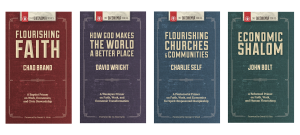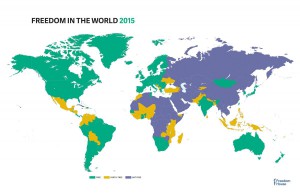


“There is a time for everything, / and a season for every activity under heaven…a time to tear and a time to mend, / a time to be silent and a time to speak” (Ecclesiastes 3:1,7 NIV).
On April 19, 1963, writing from the jail in Birmingham, Martin Luther King, Jr. penned the following words:
We know through painful experience that freedom is never voluntarily given by the oppressor; it must be demanded by the oppressed. Frankly, I have yet to engage in a direct-action campaign that was “well timed” in the view of those who have not suffered unduly from the disease of segregation. For years now I have heard the word “Wait!” It rings in the ear of every Negro with piercing familiarity. This “Wait” has almost always meant “Never.” We e to see, with one of our distinguished jurists, that “justice too long delayed is justice denied.”
King was responding to what he called the “white moderate” who “paternalistically believes he can set the timetable for another man’s freedom; who lives by a mythical concept of time and who constantly advises the Negro to wait for a ‘more convenient season.'” King concluded that “shallow understanding from people of good will is more frustrating than absolute misunderstanding from people of ill will. Lukewarm acceptance is much more bewildering than outright rejection.”
This reminds me of an exchange that took place in 1933 between theologians Dietrich Bonhoeffer and Karl Barth. Earlier in the year, the Nazis had passed the “Law for the Restoration of the Professional Civil Service,” (Gesetz zur Wiederherstellung des Berufsbeamtentums), which contained the so-called Aryan clauses.
This section of the law required that any civil servant of non-Aryan descent be “retired” or “dismissed.” That summer, the German Christian (or Deutsche Christen [DC]) party of the state church would go on to win a huge victory in the church elections.
Part of the platform of the DC party, as found in “The Twenty-Eight Theses of the Saxon National Church for the Internal strengthening of the German Evangelical Church,” reads as follows (from J. S. Conway, The Nazi Persecution of the Churches 1933–45 [New York: Basic Books, 1968], pp. 353–54):
The National mits itself to the doctrines of blood and race because our people share mon blood and mon existence. Therefore, a member of the National Church can only be such a person who, according to the law of the State, is also a rade (Volkesgenosse). An official of the National Church can only be such a person, who according to the law of the State, is fit to be a civil servant. (The so-called Aryan paragraph)
With the DC victory and mitment to apply the Aryan clauses to the German church, Dietrich Bonhoeffer writes a letter to Karl Barth, which includes these words:
In your booklet you said that where a church adopted the Aryan Clauses it would cease to be a Christian church. A considerable number of pastors here would agree with you in this view. Now the expected has happened, and I am therefore asking you on behalf of many friends, pastors and students, to let us know whether you feel that it is possible either to remain in a church which has ceased to be a Christian church or to continue to exercise a ministry which has e a privilege for Aryans…
I know that many people now wait on your judgment; I also know that most of them are of the opinion that you will counsel us to wait until we are thrown out. In fact, there are people who have already been thrown out, i.e. the Jewish Christians and the same thing will very soon happen to others on grounds which have absolutely no connection with the church…. There can be no doubt at all that the status confessionis has arrived; what we are by no means clear about is how the confessio is most appropriately expressed today… (No Rusty Swords, pp. 230–31).
Here we see the younger theologian Bonhoeffer looking for support from the elder and influential Barth. That Bonhoeffer is angling for a split with the state church cannot be doubted. Barth responds almost immediately, and states:
Should one not be almost thankful that everything seems to be heading so forcefully for a crisis? But of course the question of what to do when the es is still open. Naturally the decision of the General Synod has at least partly realised the possibility which I considered. They do not, or apparently not, want to go as far as excluding non-Aryans from church membership. But even the decree about officials and pastors is intolerable, and I too am of the opinion that there is a status confessionis. That will first of all mean this, that the church authorities, or the supposed or real majority of church members represented by them, must be told directly, and at the same time publicly, ‘Here you are no longer the church of Christ!’ And it is clear that his protest cannot be made just once; it must go on and on until the scandal is done away with—or until the church answers by evicting or muzzling those who protest. So the step you had in mind seem to me to be the right one to begin with. But whatever its success may be, it must be followed by further similar steps. Otherwise I am for waiting. When the es, it e from the other side. Perhaps it e straight away in the form of an answer to the protest on behalf of the Jewish-Christian pastors. Perhaps the damnable doctrine which now holds sway in the church must first find vent in other, worse deviations and corruptions; in this connection I have gathered a pile of German Christian literature and can only say that on all sides I am most dreadfully portrayed! It could then well be that the encounter might take place at a still more central point (No Rusty Swords, pp. 231–32).
Barth’s counsel to protest but to remain in the church seemed to be too much for Bonhoeffer to handle. Following this exchange of letters, Bonhoeffer takes up a calling to leave Germany and go to London to be the pastor of two Protestant congretations. In a rather apologetic letter explaining his decision to Barth, Bonhoeffer says that after the Aryan clauses were to be enforced:
I knew that I could not accept the pastorate I longed for in this particular neighbourhood [of Berlin] without giving up my attitude of unconditional opposition to the church, without making myself untrustworthy to my people from the start and without betraying my solidarity with the Jewish Christian pastors—my closest friend [Franz Hildebrandt] is one of them and is at the moment on the brink; he is ing to me in England…
It is in this context that Bonhoeffer wrote the earlier letter to Barth requesting guidance. After all, while Bonhoeffer would have favored a loud and public split with the now-false German church, after receiving Barths’ reply,
I was afraid I would go wrong out of obstinacy—and I saw no reason why I should see these things more correctly, better than so many able and good pastors, to whom I looked up—and so I thought that it was probably time to go into the wilderness for a while and simply do pastoral work, with as little demands as possible. The danger of making a gesture at the present moment seemed to me greater than that of going off for some quietness. So off I went (No Rusty Swords, 234–35).
Barth’s response is pointed and direct. He replies in part,
You can deduce from the very way in which I address you that I do not think of regarding your departure for England as anything but a necessary personal interlude. Once you had this thing on your mind, you were quite right not to ask for my wise counsel first. I would have advised you against it absolutely, and probably by bringing up my heaving guns. And now, as you are mentioning the matter to me post eventum, I can honestly not tell you anything but ‘Hurry back to your post in Berlin!’ (No Rusty Swords, 237).
I pass all this along simply to juxtapose and thus clarify the three viewpoints that e apparent in the course of all these letters. In his situation, King refuses to wait any longer before engaging in direct political protest and action. Bonhoeffer is inclined to be of the same mind, but is unsure about taking such action without the support of other sympathetic religious leaders. Barth clearly does not want to break with the state church in 1933, preferring to wait for “a still more central point” than the ban against non-Aryan clergy.
I evaluate the correspondence between Bonhoffer and Barth in more depth as part of an ing article in the Scottish Journal of Theology, “The Aryan Clause, the Confessing Church, and the Ecumenical Movement: Barth and Bonhoeffer on Natural Theology, 1933–1935” (issue 59, number 3, 2006). In this piece, I note that Barth’s “more central point” es in 1934 when he is faced with personally signing a pledge of loyalty to Hitler. Following his refusal to sign such an oath, Barth is eventually driven out of Germany in June of 1935.
Reflecting on these events later, Barth writes, “From the very first moment that I heard in Switzerland that this oath was being required, it was quite clear to me that when the request reached me I would be put in the status confessionis as specifically and as appropriately as could be” (Letter to H. von Soden, December 5, 1934).
You can judge for yourself whether Barth’s actions are immune to Eric Voeglin’s observation about the situation in Germany: “So here you have this pattern of social behavior. As long as the neighbor gets it in the neck, we all happily join in, but as soon as our own es, then there is resistance. But by that time it is a bit too late, and naturally the basic rules of humanity were not available when the other was being massacred.” Voeglin writes of Bonhoeffer that he is of of the “genuine victims of resistance; but what is usually called resistance is a resistance apropos of the threat to people’s own social, material or institutional interests.”
When Bonhoeffer writes to Barth in 1933, Barth wants to wait for “a more central point,” and notes this with reference to how he himself is “most dreadfully portrayed” in German Christian literature. Barth ultimately makes the break when he is faced personally with signing the pledge to Hitler in 1934.









